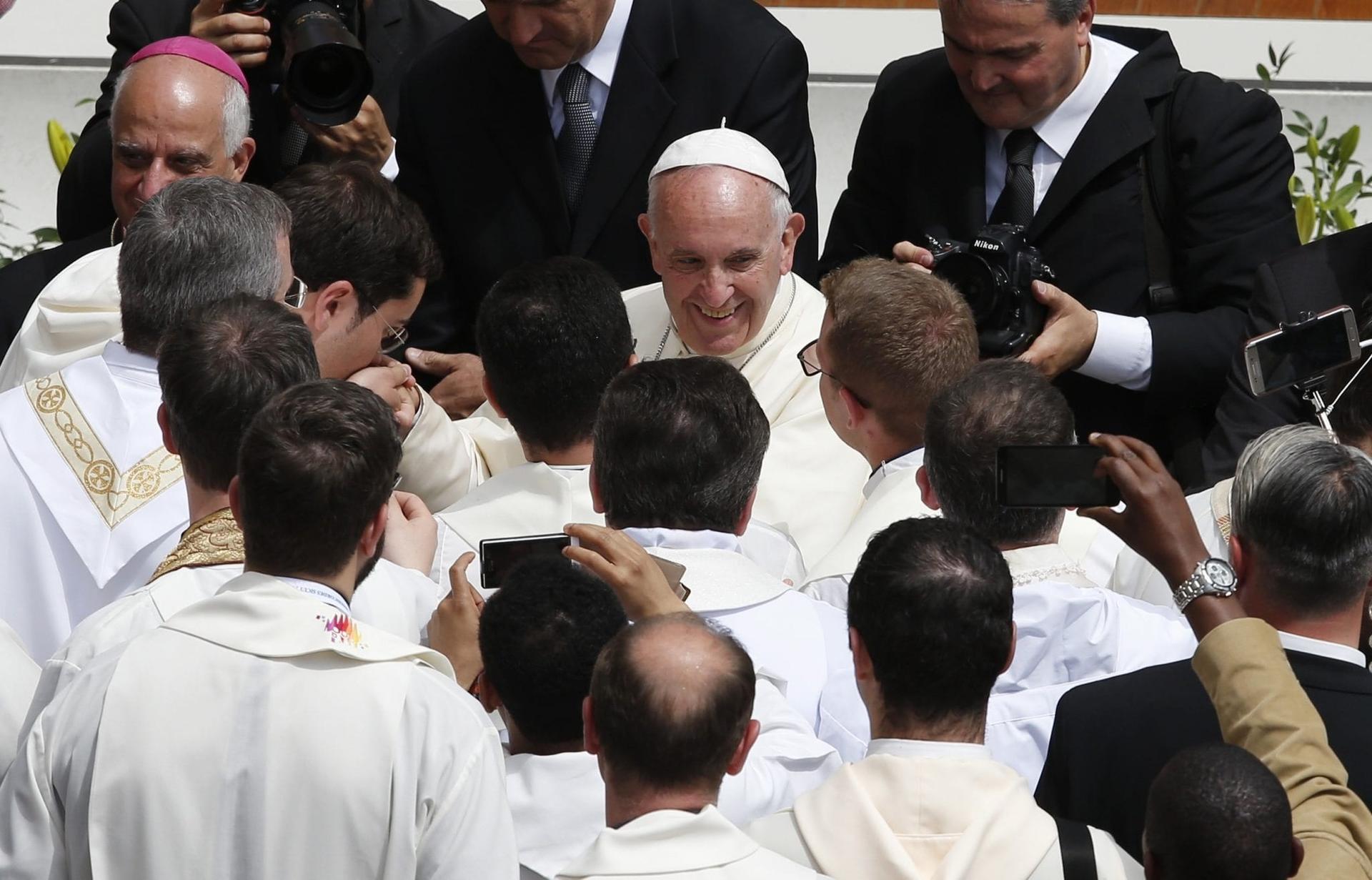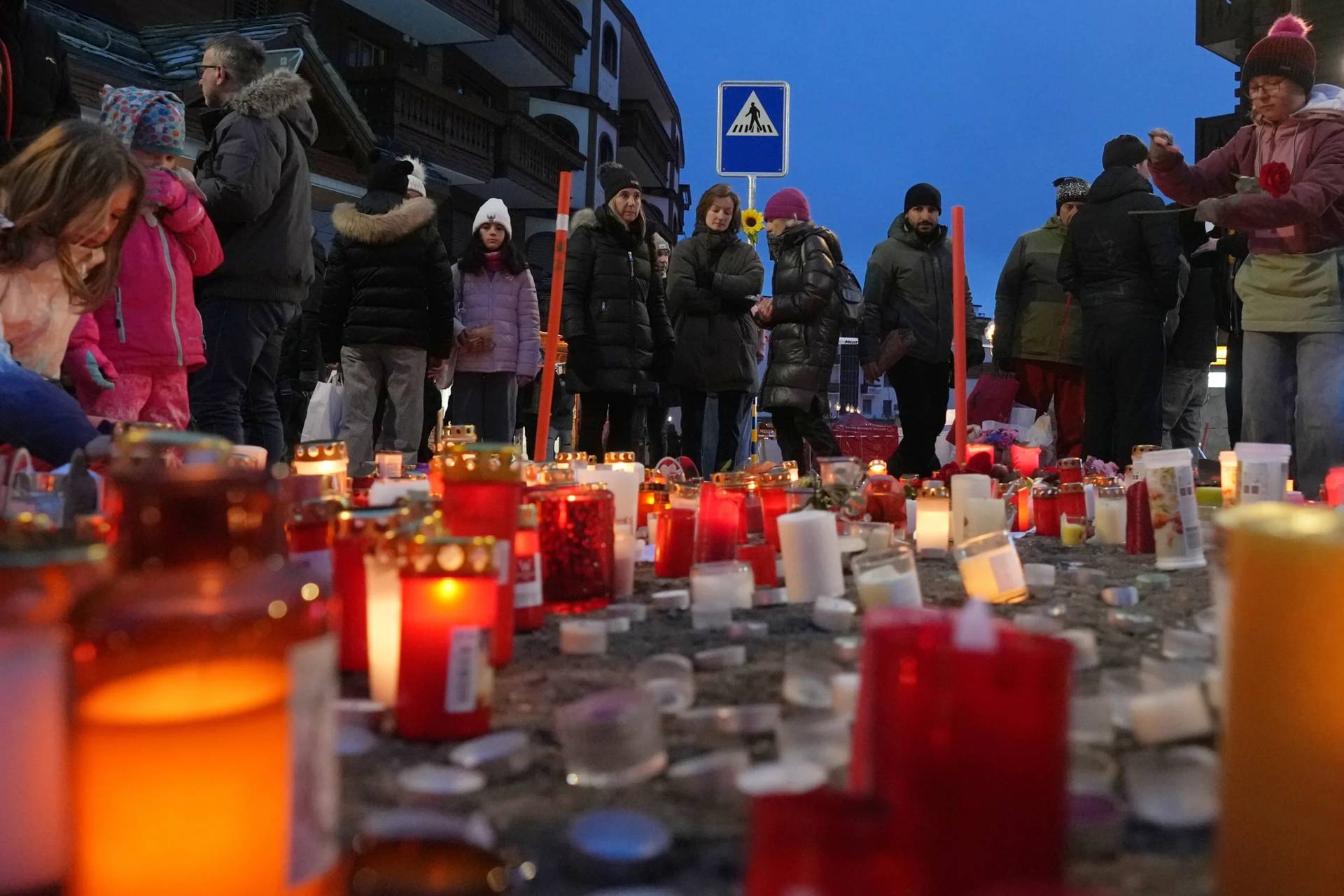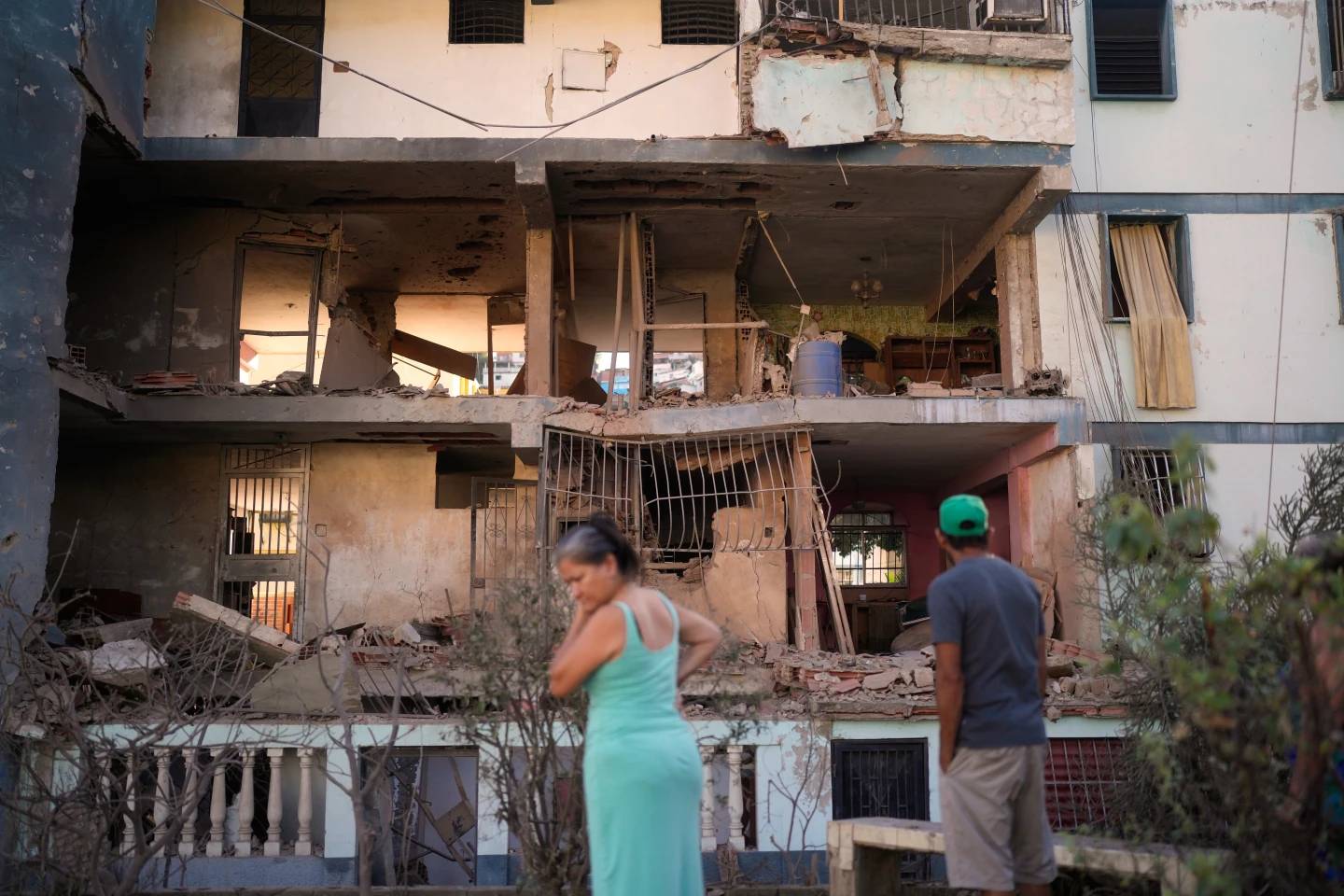ROME – In a just released transcript of Pope Francis’s off-the-cuff speech to seminarians studying in Rome, which he gave March 16, the pontiff warns about the dangers of the internet, the temptations of the Devil and the need for a good, healthy sense of humor.
“Be prepared, for when the demons of life arrive,” Francis told the more than 2,000 students of the Roman ecclesial colleges gathered in the Paul VI hall at the Vatican, “and for when many other challenges will arrive, all born from original sin and the temptation of the devil.”
The pope went through the main challenges that priests have to face and prepare for, emphasizing that it’s a journey that requires accompaniment and discernment.
“If you are a priest, you can’t be a ‘quiet’ priest, a sacristy priest,” Francis said, one who only receives and offers confession from such to such a time on certain days of the week. If this is the case, he added, “you have extinguished your zeal, you changed your register a little bit and have learned to listen only to other things.”
Francis acknowledged that this journey “is tiring,” and that’s why it’s important for priests to have someone who accompanies them, but the pope makes a very important distinction. “One thing is your confessor, where you go, you say your sins, he forgives you and it’s finished. Another is who accompanies you: They are two separate things.”
He who accompanies the priest, the pope said, does not have to be a priest – in fact – he added, it’s even better if he is a layperson, as long as he has the charism to accompany you. Such a person is important in guiding the priests down the right path, and avoiding the temptations of the Devil.
“The devil exists!” Francis said. “And the devil – as Peter says – patrols, like ‘leo rugens’ [a roaring lion].”
While answering a question by Nebil from Sudan, Francis took the opportunity to answer something that had stuck in his craw. “The slanderers say ‘now discernment is in vogue: This pope came here with this issue… What does that matter here?’ But discernment is in the Gospel! Right in the Gospel and in the entire history of the Church,” he said.
The pope credited his Jesuit metaphysics professor, Father Florito, with teaching him how to discern, adding that he acted as his spiritual father until his death. Discernment, he added, is also fundamental in order to avoid rigidity and leave space for the Holy Spirit.
“When you are incapable of going forward with things that are happening to you or outside and judge them, you will become rigid or will fall into casuistry, in the logic of ‘this is okay, this is not okay.’ And everything is closed. The Holy Spirit does not work,” Francis said.
According to the pope, “we fear the Holy Spirit,” and try to cage Him within gestures and doctrine. An easy way to spot if the Holy Spirit is active within someone, Francis added, is by seeing whether he has a sense of humor.
“For me a sense of humor is the human behavior – it’s human! – that is closest to grace,” he said. “It’s that good ‘relativism,’ the relativism of joy, the relativism of spirituality, that relativism which is born from the Holy Spirit.”
Beyond the spiritual formation that Francis mentioned, it’s important to cater to the human formation of priests as well. Spontaneity, and not rigidity, is key for a priest to be able to be with his brothers and flock, the pope said, though he warns about the dangers this might entail without discernment.
“If you don’t know how to caress well as fathers and as brothers, it’s possible that the devil might lead you to pay for caressing,” Francis warned. “Be careful.”
He went on to make a distinction between priests who act like fathers or step-fathers, where the former are capable of giving life and the latter are sour and stuck in the routine. “If one of you doesn’t feel like becoming a father, then please leave, it’s better,” the pope said.
To Luigi, a priest from the United States, Francis described the importance of diocesan priests having a good relationship with their bishop, their brother and their parishioners, and once again condemned gossip as the “leprosy of a presbytery.”
Finally, the pope encouraged the priests to take part in a permanent formation, to ward off the dangers and temptations of everyday life and not become a mere “functionary of the sacred.” Among the main dangers is contemporary culture, the pope said, and modern forms of communication.
“How do I enter, with my cellphone, in my virtual communications?” Francis asked. “You know well what I speak of: what am I trying to look at, out of curiosity? And you know. There is contemporary culture that enters my soul and sullies it.”
Quoting St. Ignatius of Loyola, founder of the Society of Jesus, the pope also warned against riches, vanity and pride as the three steps leading to sin. Beyond the desire for comfort, celibacy is also a challenge, he continued, telling priests to be prepared and, always, discern.
“You are normal men, you have the desire to have a woman, to love,” Francis said. “And if the possibility should arise, how would you react? Do you have the desire to generate children? Not just spiritual but also others? This is something that we have in our nature given by God.”
All these challenges, the pope said, will be difficult to face as life goes on. For this reason, he said, permanent formation is always important.
“Not just to solve temptations, but also to stay familiar with current realities, in the developments of pastoral care, of theology, and the life of the Church,” Francis said.
















